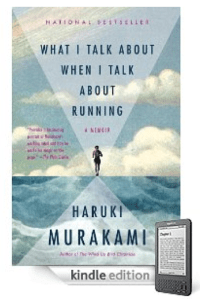Hi folks,
I went out into the garden the other day and it just so happened that both my eldest son, Nick (42), and my middle son, Duncan (40), were there together and they were talking about their kids (my grandchildren). What happened then was an odd and strangely rare experience, much like the one I had when I first saw my own cells under a microscope. Several years previously, I had a biopsy of a small squamous cell mass on my head. As a pathologist (retired from, and about time too, though I had lots of fun doing it), I happened to have a microscope around so I asked the dermatologist to request that a spare section be cut for my examination. Such tissue sections are made using fixatives, paraffin wax, a remarkable staining procedure called hematoxylin and eosin (H&E), a glass slide, mounting medium, and a coverslip.
When the slide arrived in the mail I took a look, and what I saw was much like the picture on the left, but without the hallmarks of malignancy (which is probably why I am still here). I was extremely surprised by my emotional/spiritual reaction to seeing my own cells for the first time in some detail. It was, in fact, an emotional shock. On the slide lay a 6-micrometer (one millionth of a meter) thick slice of my scalp. The slice revealed a low-grade squamous tumor, though any tumor on me is not considered low-grade by my personal limbic system, which screams “get it off of me!!!!” I encouraged the dermatologist to do so and she did (Thank you! Thank you!), and here I was at home looking at it.
The remarkable thing was not the pattern of cells on the slide, which portrayed in frozen relief the usual battle between an early cancer and the immune system, with which I am only too familiar. No! It was the fact that they were my cells. They were me in a deep personal way, and we had killed them by cutting them away from my head, pickling them in formaldehyde, followed by embedding in wax, cutting into thin slices, stained and ignominiously gluing them to a sheet of glass. But they were my squames, my mast cells, my lymphocytes, my macrophages, and my connective tissue staff. I suspect that they had had no inkling of my existence prior to their demise, even though they and their multitude of ancestors had created the me that I know. I still haven’t recovered from the realization that I REALLY AM A COLONY. I knew this intellectually, but not emotionally.
It is odd how we feel like one thing, an individual. But we are comprised of many millions of things, cells, each living their lives in their own micro-environment, talking to but a tiny percentage of their fellows. In spite of this fact, we, as people, appear to have a single consciousness that makes us feel like one thing, the me!
I am still trying to come to terms with this concept, which inevitably leads to other questions, such as ‘does a large group of people, or other animals, have a single consciousness, of which its individual members are unaware, and if so is this über consciousness self-aware?’ This, of course, leads to thoughts of a Gaia conciousness, I guess. And then I heard my kids talking about their kids, and I suffered a similar epiphany, but with respect to time in this instance. Any population of cells or people or whatever living organism you choose, has both a horizontal (now) and vertical (through time) dimension! Does such a population have both a vertical and horizontal consciousness, I wondered? Life seems so simple until you think about it, which is what makes it so much fun.
This is the kind of thing that goes through my head during training, sometimes, which reminds of a great book that you should read, ‘What I Talk About When I Talk About Running.’ Haruki Murakami’s book about ‘Kafka’ is great too.
Happy training to you and all of your cells and their descendants.
Cheers,
Kevin










Keynes coined the economic concept of a paragox about THRIFT.
As an individual it is good to be thrifty. It enables us to live within our means.
The society he lived in was overthrifty. This led to economic depression as there was a deficiency in aggregate demand and money was stored in idle balances in banks. This led to mass unemployment, and in part to the great depression.
He called this the “paradox of thrift”.
For this reason and others economist split their “partial insights” (my term) into Macroeconomics and Macroeconomics. (I will leave out the Mesoeconomic sector for now)
You have just done the same for complex biological organisms.
When I kept bees it was clear to me that the collective, the hive, is an entity of sorts. Also isolated honey bees do tend to die quite quickly if they have no companion bees. (When you buy a queen she always comes with companion bees)
Should your cells be set free to live their individual lives they would not last long so you are really undividable so you are, if you wish to continue, also an individual as well as a colony. You are both at the same time.
Sadly, today we live in a time of the “paradox of debt” and this like the paradox of thrift before it, will have a dreadful effect on the collective organism, that entity we call society.
So we face more creative destruction…
Hi Trevor,
It is good to think, and mass extinctions come and go. There is an interesting pattern of these extinctions based on the fossil record, if I remember correctly, which I assume will be supplemented and modified by the genomic records as they are developed. I guess being here and now and often happy is as good as it gets.
Once again, I enjoy your thoughtful responses to my ramblings.
Cheers,
Kevin